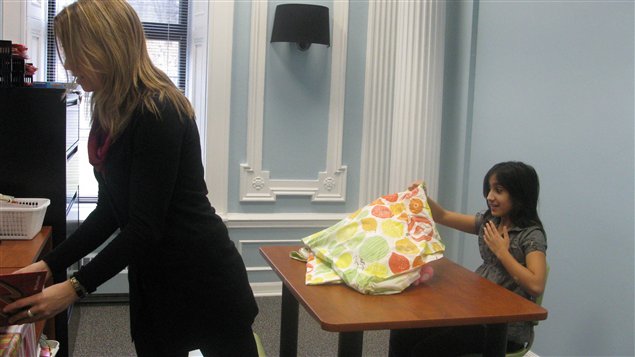Stories in which honesty is rewarded are more likely motivate children to tell the truth, than are stories where lying is punished, according to a new study from McGill University. In Canada, as in almost every culture in the world, children are told or read stories which have a moral message. Researchers wanted to find out which kinds of stories were more likely to positively affect children’s behaviour.

Hard to resist peeking
A game was set up for 268 children between the ages of three and seven where they had to guess the identity of a toy after listening to a sound it made. Part way through the game the experimenter said she would leave the room and the child was not to peek at a toy that was left on the table. This has been proven difficult to resist for 70 to 80 per cent of children in several studies done across the world.
When the experimenter returned she read just one of four stories to the child before resuming the game. There were two stories involving characters who had lied and then suffered negative consequences for characters. One story had a positive outcome for the character who told the truth about something he had done. And a final story was completely neutral and involved no lying or telling the truth.
Different stories, different behaviour
Of the children who had peeked and heard the neutral story, 70-80 per cent did not admit they had looked. The same was true for the children who had heard the negative stories. But of the children who heard the positive story, over 50 per cent confessed to having peeked at the toy.
“From this we concluded that stories or messages that talk about the positive consequences of being honest have a greater effect on children’s actual truth-telling behaviour than stories that emphasize the negative consequences of being dishonest,” says Victoria Talwar, an associate professor at McGill’s department educational and counselling psychology. “It alerts (them) to the importance of being honest and makes them more likely to be honest.”
Positive stories do change children’s behaviour
The study shows how classical tales affect children’s behaviour, says Talwar, “but also, in general, helps (in) understanding what are the elements that lead children to learn these moral messages that we want to inculcate in them , how we socialize these children to develop virtues such as being honest, and what messages have more powerful effect than other messages.”







For reasons beyond our control, and for an undetermined period of time, our comment section is now closed. However, our social networks remain open to your contributions.